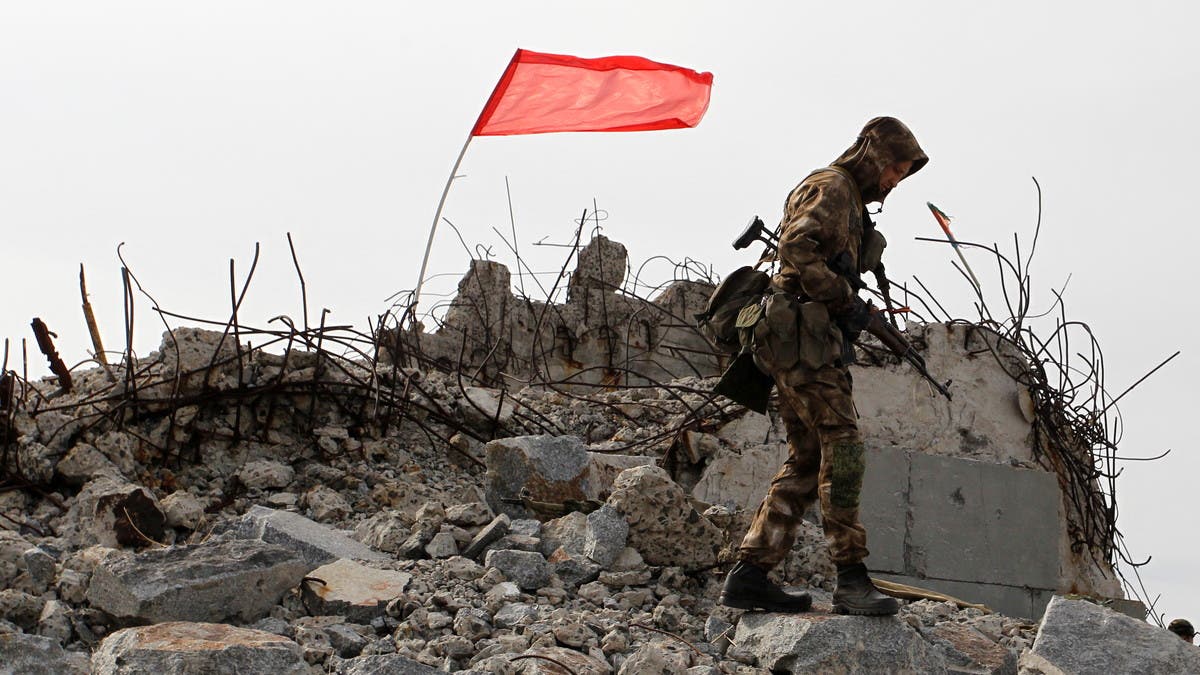Ukraine ruled out a ceasefire or concessions to Moscow while Russia intensified an offensive in the eastern Donbas region and stopped providing gas to Finland, as Polish President Andrzej Duda prepared to address the Ukrainian parliament on Sunday.
For the latest headlines, follow our Google News channel online or via the app.
After ending weeks of resistance by the last Ukrainian fighters in the strategic southeastern city of Mariupol, Russia is waging a major offensive in Luhansk, one of two provinces in Donbas.
Russian-backed separatists already controlled swathes of territory in Luhansk and the neighboring Donetsk province before the Feb. 24 invasion, but Moscow wants to seize the last remaining Ukrainian-held territory in Donbas.
“The situation in Donbas is extremely difficult,” Ukrainian President Volodymyr Zelenskyy said in his nightly address. The Russian army was trying to attack the cities of Sloviansk and Sievierodonetsk, but Ukrainian forces were holding off their advance, he said.
Zelenskyy adviser Mykhailo Podolyak ruled out agreeing to a ceasefire and said Kyiv would not accept any deal with Moscow that involved ceding territory. Making concessions would backfire on Ukraine because Russia would hit back harder after any break in fighting, he said.
“The war will not stop (after concessions). It will just be put on pause for some time,” Podolyak, Ukraine’s lead negotiator, told Reuters in an interview in the heavily guarded presidential office. “They’ll start a new offensive, even more bloody and large-scale.”
Recent calls for an immediate ceasefire have come from US Defense Secretary Lloyd Austin and Italian Prime Minister Mario Draghi.
The end of fighting in Mariupol, the biggest city Russia has captured, gives Russian President Vladimir Putin a rare victory after a series of setbacks in nearly three months of combat.
The last Ukrainian forces holed up Mariupol’s vast Azovstal steelworks surrendered on Friday, Russia said.
Full control of Mariupol gives Russia command of a land route linking the Crimean Peninsula, which Moscow seized in 2014, with mainland Russia and areas of eastern Ukraine held by pro-Russia separatists.
Ukrainian forces in the separatist-controlled regions of Luhansk and Donetsk said on Saturday they had repelled nine attacks and destroyed five tanks and 10 other armored vehicles in the previous 24 hours.
Russian forces were using aircraft, artillery, tanks, rockets, mortars and missiles along the entire front line to attack civilian structures and residential areas, the Ukrainians said in a Facebook post. At least seven people had been killed in the Donetsk region, they said.
The British Ministry of Defense said on Sunday that Russia was deploying its BMP-T “Terminator” tank-support vehicles in that offensive. With only 10 available for a unit that already suffered heavy losses in the failed attempt on Kyiv, however, the ministry said they were “unlikely to have a significant impact.”
Russian troops destroyed a bridge on the Siverskiy Donets River between Sievierodonetsk and Lysychansk, Luhansk regional governor Serhiy Gaidai said. There was fighting on the outskirts of Sievierodonetsk from morning through the night, he said on the Telegram messaging app.
Sievierodonetsk and its twin Lysychansk across the Siverskiy Donets River form the eastern part of a Ukrainian-held pocket that Russia has been trying to overrun since mid-April after failing to capture Kyiv.
Gas dispute
Russia’s state gas company, Gazprom, said it had halted gas exports to Finland, which has refused Moscow’s demands to pay in rubles for Russian gas after Western countries imposed sanctions over the invasion.
Finland and Sweden applied on Wednesday to join the NATO military alliance.
Finnish state-owned gas wholesaler Gasum, the Finnish government and individual gas-consuming companies in Finland have said they were prepared for a shutdown of Russian flows.
Most European supply contracts are denominated in euros or dollars. Last month, Moscow cut off gas to Bulgaria and Poland after they refused to comply with the new terms.
Western nations also have stepped up weapons supplies to Ukraine. On Saturday, Kyiv got another huge boost when U.S. President Joe Biden signed a bill to provide nearly $40 billion in military, economic and humanitarian aid.
Moscow says Western sanctions, along with arms deliveries for Kyiv, amount to a “proxy war” by the United States and its allies. Thousands of people in Ukraine have been killed in the war that has displaced millions and shattered cities.
Zelenskyy said he stressed the importance of more sanctions on Russia and unblocking Ukrainian ports in a call with Draghi on Saturday.
Duda, who met with Zelenskyy in Kyiv last month, is the first foreign leader to address parliament in person since the invasion, his office said.
Read more:
Russia stops Finland gas flow over payments dispute
Russia bans 963 Americans from entering country, adds 26 new Canadians
Explainer: Who were Mariupol’s last defenders?

 World3 years ago
World3 years ago
 World3 years ago
World3 years ago
 Business1 year ago
Business1 year ago
 Entertainment7 years ago
Entertainment7 years ago
 World7 years ago
World7 years ago
 Entertainment7 years ago
Entertainment7 years ago






